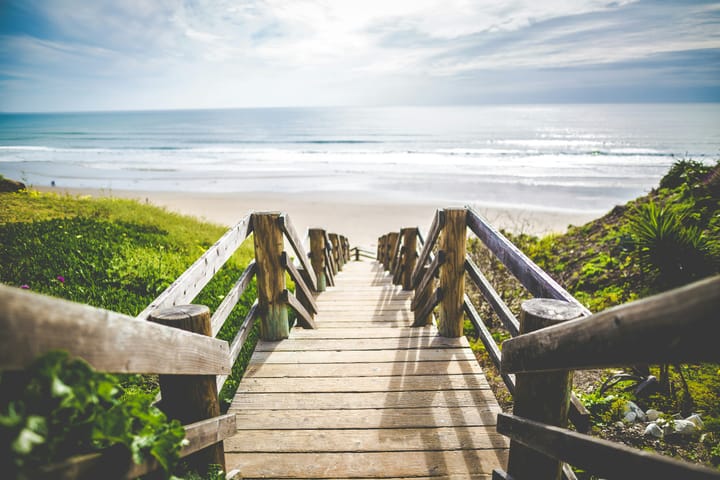In a world that often equates success with accumulation, the idea of owning less can feel counterintuitive. Yet, minimalism — the practice…
In a world that often equates success with accumulation, the idea of owning less can feel counterintuitive. Yet, minimalism — the practice of intentionally reducing what you own to focus on what truly matters — has gained traction as a lifestyle choice that fosters freedom, clarity, and contentment. By owning less, you can simplify your life, reduce stress, and create space for the things that bring you happiness.
The Case for Owning Less
Owning fewer possessions doesn’t mean sacrificing comfort or convenience; rather, it’s about shedding the excess that clutters your home and mind. Here are some compelling reasons to own less:
Reduced Stress: A clutter-free environment is easier to maintain and promotes a sense of calm. When your home isn’t overflowing with items, you can focus on relaxation rather than constant tidying. Research shows that physical clutter can increase cortisol levels, leading to heightened stress and anxiety. By simplifying, you create a serene space that nurtures mental well-being.
Financial Freedom: Buying less saves money. With fewer purchases, you can allocate resources to experiences or goals that bring lasting satisfaction, such as travel, education, or savings. Minimalism also reduces the temptation of impulse buying, helping you build healthier spending habits and achieve long-term financial stability.
More Time: Less stuff means less time spent cleaning, organizing, and maintaining. This frees up time for hobbies, relationships, and self-care. For instance, instead of spending your weekend sorting through clutter, you can dedicate that time to enjoying meaningful activities with loved ones or pursuing personal growth.
Environmental Impact: Owning less reduces waste and your ecological footprint. Minimalism encourages mindful consumption and sustainable living. By choosing quality over quantity and reusing items, you contribute to reducing landfill waste and conserving resources, making a positive impact on the planet.
How to Embrace Minimalism
Transitioning to a minimalist lifestyle doesn’t happen overnight, but it’s a rewarding journey. Here are practical steps to get started:
Assess Your Belongings
Take inventory of your possessions and identify what truly adds value to your life. Ask yourself:
Do I use this regularly? Consider whether the item plays an active role in your daily life or if it’s merely taking up space.
Does this item bring me joy? Borrowing from the KonMari method, keep items that spark happiness and let go of those that don’t.
Would I miss it if it were gone? If an item’s absence wouldn’t make a noticeable difference, it’s likely not essential.
Start with one category at a time, such as clothing, books, or kitchenware, to avoid feeling overwhelmed. Breaking the process into manageable steps ensures steady progress.
Declutter Mindfully
Decluttering isn’t about getting rid of everything; it’s about keeping what serves a purpose or holds genuine meaning. Use these methods to simplify:
The One-Year Rule: If you haven’t used an item in the past year, consider letting it go. Seasonal exceptions, like holiday decorations, can be assessed separately.
The Box Method: Place items you’re unsure about in a box. If you don’t retrieve them within a set timeframe, you likely don’t need them. This creates a buffer zone for decision-making without immediate pressure.
Give Items a Second Life: Donate, sell, or recycle items to ensure they’re reused rather than wasted. Passing items to someone who can use them adds value beyond your personal needs.
Adopt Mindful Consumption
Minimalism is as much about avoiding future clutter as it is about reducing current possessions. Before making a purchase, consider:
Do I really need this? Distinguish between needs and wants to prevent unnecessary purchases.
Will this add value to my life? Evaluate how an item will enhance your lifestyle or solve a specific problem.
Is this purchase aligned with my goals? Aligning purchases with your long-term priorities ensures thoughtful spending.
Focus on quality over quantity, and prioritize items that are durable, versatile, and timeless. Avoid falling into the trap of replacing decluttered items with new ones unless they’re essential.
Create a Functional Space
Arrange your home to support a minimalist lifestyle:
Designate Spaces: Assign specific areas for items to avoid clutter. For example, use a single shelf for books or a single drawer for gadgets. Having defined spaces makes organization effortless.
Embrace Open Spaces: Empty surfaces and clear floors create a sense of tranquility and openness. Resist the urge to fill every corner; instead, let the emptiness enhance the aesthetic.
Simplify Decor: Choose decor that’s meaningful and intentional rather than filling spaces for the sake of it. A few well-chosen pieces can make a bigger impact than an abundance of decorations.
Focus on Experiences Over Things
Minimalism isn’t just about what you own; it’s about shifting your focus from material possessions to meaningful experiences. Spend your time and resources on activities that enrich your life, such as spending time with loved ones, learning new skills, or exploring the outdoors.
The Emotional and Practical Benefits
Owning less doesn’t just simplify your physical space; it also nurtures emotional well-being. Here’s how minimalism can enhance your life:
Increased Clarity: With fewer distractions, you can concentrate on your goals, passions, and personal growth. A streamlined environment fosters a sharper focus on what matters most.
Greater Gratitude: Owning less helps you appreciate what you have and avoid the trap of always wanting more. This shift in perspective cultivates contentment and reduces the pressure of comparison.
Improved Relationships: Simplifying your life leaves more time and energy for connecting with the people who matter most. Shared experiences often become the memories you cherish most, not the things you own.
Enhanced Productivity: A tidy, uncluttered environment fosters focus and efficiency, whether you’re working, creating, or relaxing. Without the constant distraction of clutter, your mind is free to think clearly and act decisively.
Living with Purpose
Embracing minimalism is a personal journey that’s different for everyone. The goal isn’t to adhere to a strict set of rules but to create a lifestyle that aligns with your values and priorities. By owning less, you gain the freedom to focus on what truly matters, whether that’s building meaningful relationships, pursuing passions, or simply enjoying a peaceful home.
So, take the first step today. Let go of what no longer serves you and discover the happiness of living with less.






Comments ()